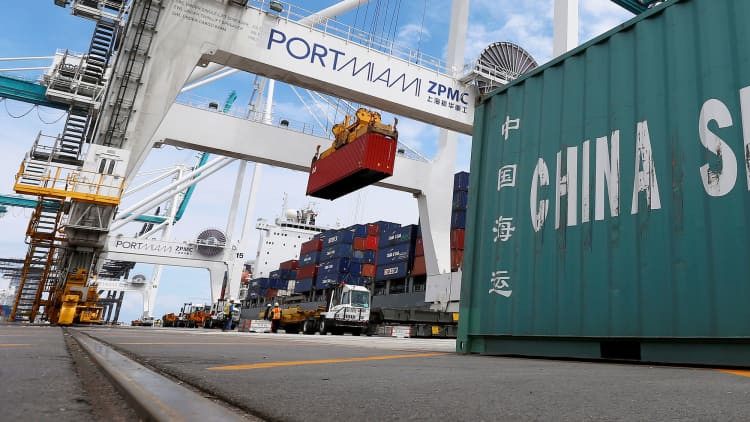
The U.S. withdrawal from the Trans-Pacific Partnership (TPP) trade deal won't just leave the U.S. on the outside looking in, it will devastate American agriculture, a former U.S. Trade Representative told CNBC.
"We're now going to be competing against other countries who are going to reduce over 18,000 tariffs. Those tariffs will now stay in place for the U.S.," Ron Kirk, who was the U.S. Trade Representative (USTR) from 2009-2013, told CNBC's "Squawk Box" on Tuesday. "This is going to be devastating for American farmers and ranchers and businesses."
Newly inaugurated U.S. President Donald Trump on Monday formally pulled the U.S. out of the Trans-Pacific Partnership, or TPP, which would have created a 12-country free-trade bloc. The TPP, which was negotiated during President Barack Obama's term in office, hadn't yet been voted on or ratified by Congress.
Kirk, who is currently senior of counsel at law firm Gibson, Dunn & Crutcher, said it was difficult to understand the rationale of pulling out of TPP.
"It's the equivalent of building the largest duty-free shopping zone in the world and then declaring we don't want to participate," he said, noting that the deal was "the most modern state-of-the-art trade agreement," including enhanced intellectual property and anti-counterfeiting protection.
By exiting TPP, the U.S. has lost the ability to shape the direction of trade, Kirk said.
"First to market means something," he said. "The U.S. being in on the ground floor, along with Chile and Singapore and Brazil and New Zealand and Mexico and Canada and others, really put us in an advantageous position to have this agreement reflect our values and made sure it protected our workers and our businesses and gave us fair access to those markets."
Sending the deal to the circular file has meant that the other 11 participants in the deal can now adopt the deal without the U.S., he said.
"Short-term and long term I see this as not positive for U.S. interests economically and certainly not in terms of our prestige and our leadership in Southeast Asia," Kirk said.
In place of the TPP, Trump has said he planned to ditch multi-lateral trade deals in favour of negotiating bilateral agreements.
But Kirk noted that negotiating trade deals was already a difficult proposition and it's much more efficient to negotiate them on a multi-lateral, rather than a bilateral, basis.
It remains to be seen whether the Trump administration can negotiate more favorable terms with trade partners without slowing the cross-border flow of goods and services.
Analysts have serious concerns about how more protectionist policies could impact the U.S. economy.
For example, in a report dated Monday, Deutsche Bank estimated that if the U.S. introduced a "border adjustment" for imported products, that would increase the cost of the average vehicle by $2,300, reducing U.S. demand by 1.2 million units a year in the short term.
—John W. Schoen contributed to this article.
—By CNBC.Com's Leslie Shaffer; Follow her on Twitter @LeslieShaffer1


